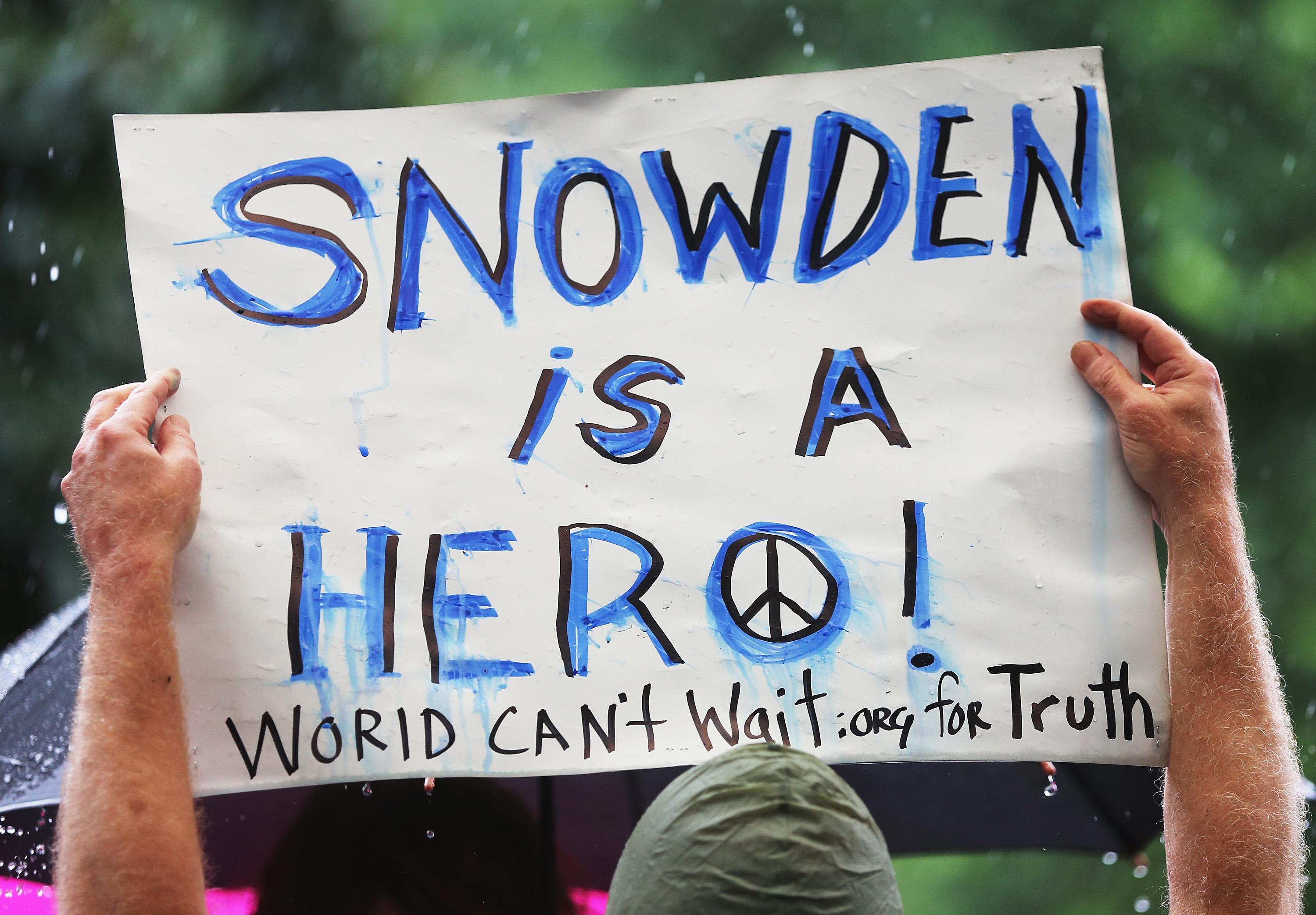On Thursday, the Second Circuit Court of Appeals held that the National Security Agency’s bulk collection of telephone metadata is illegal. The program, a three-judge panel unanimously declared, “exceeds the scope of what Congress has authorized” with regard to the surveillance of American citizens. Although the court declined to decide whether the program also violates the Fourth Amendment of the Constitution, it strongly implied that it does. The ruling is the most emphatic and prominent judicial rejection of NSA yet issued by a federal court.
As the Second Circuit candidly admits, its decision on Thursday is entirely the result of Edward Snowden’s decision to leak details of the bulk collection program two years ago. Before that leak, Americans hoping to challenge NSA surveillance were unable to establish standing—that is, legal authority to challenge a law—because they couldn’t prove the surveillence targeted them. The documents Snowden leaked, however, proved that the NSA forced Verizon “to produce detail records, every day, on all telephone calls made through its systems or using its services where on or both ends of the call are located in the United States.” Thanks to that leak, Verizon customers have standing to challenge that surveillance in court, since they can now be certain the government spied on their phone records.
Ideally, these plaintiffs (and the American Civil Liberties Union, which represents them) want the courts to hold that this kind of indiscriminate surveillance constitutes an “unreasonable search” or “seizure” in violation of the Fourth Amendment. The Second Circuit refused to reach that question, although it did declare that “the seriousness of the constitutional concerns … has some bearing on what we hold today, and on the consequences of that holding.” Instead of going the constitutional route, the court simply held that the bulk collection of call records constituted an illegal violation of statutory authorization. Put simply, Congress granted the NSA the authority to collect only “tangible things … relevant to an authorized investigation.” Congress did not grant the NSA the authority to collect the call records of every single Verizon customer, including millions who had never engaged in any suspicious conduct. By going so far beyond its statutory mandate, the NSA violated the plain language of the law, illegally intruding upon millions of Americans’ privacy.
To remedy such a transgression, the Second Circuit acknowledges that it would, under normally circumstances, issue a preliminary injunction forcing the NSA to halt its bulk collection program. But the court notes that the law in question “is scheduled to expire in just several weeks.” So the court essentially puts Congress on notice: You can either stop this illegal surveillance yourself, it says, or permit it to continue—and force us to strike it down in the future. The ball, in other words, is once again in Congress’ court. But this time around, if the legislative branch doesn’t act, the judiciary seems poised to step in and put the kibosh on the NSA’s unlawful surveillance.
